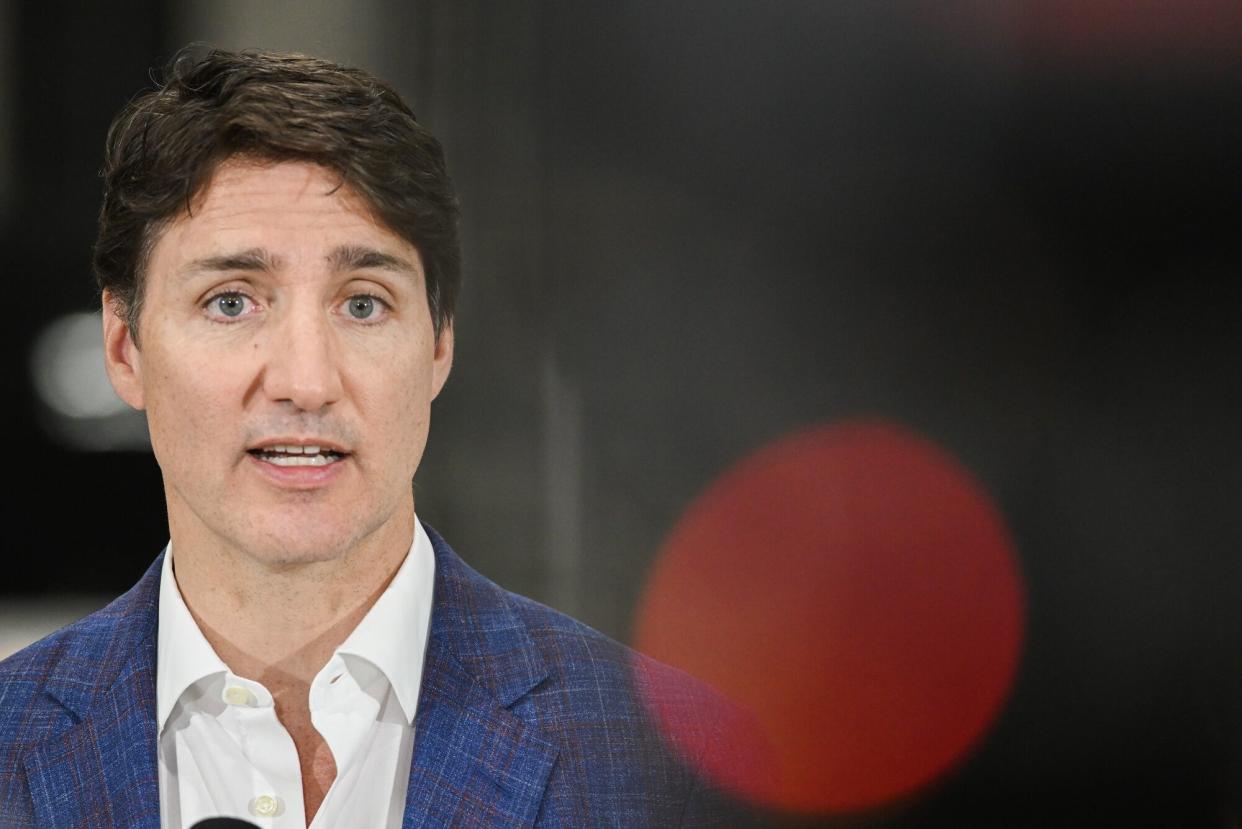Trudeau Digs In After Toronto Seat Loss Sparks Resignation Calls

(Bloomberg) -- Prime Minister Justin Trudeau made it clear he intends to stay in office despite a special election loss in Toronto plunging him into the most difficult political crisis of his career.
Most Read from Bloomberg
Biden’s Fourth of July Shrouded by Pressure to Drop 2024 Bid
Kamala Harris Is Having a Surprise Resurgence as Biden’s Campaign Unravels
China Can End Russia’s War in Ukraine With One Phone Call, Finland Says
Newsom Shocks California Politics by Scrapping Crime Measure
Some Liberals have openly called for Trudeau to step down after his party was defeated last week in Toronto-St. Paul’s, a district the Liberals had held since 1993. The loss to the rival Conservative Party confirmed the brutal polling numbers his party has seen over the past year, and suggests his party could face a rout in the general election expected to take place sometime in 2025.
“Let’s be very clear: last week’s by-election loss, not to sugarcoat it, was challenging,” Trudeau said Wednesday at his first news conference since the defeat. But he said he’s having “important conversations” with members of his party and is determined to work even harder to deliver on his government’s programs.
The loss has prompted one sitting Liberal lawmaker to publicly call on Trudeau to resign. Other caucus members have criticized Trudeau in the media, but only on the condition of anonymity. A group of former Liberal politicians — all of whom were previously known as Trudeau critics to varying degrees — have also demanded new leadership.
Still, support for Trudeau among his 155-member Liberal caucus appears to be holding together so far, and the prime minister told reporters on Wednesday that he’s focused on governing.
“There are, as always, a range of perspectives and voices within the Liberal Party,” Trudeau said, adding that that he’s listening to the views of caucus members across the country, not just those who “speak to the media.”
Trudeau said Canadians are looking for action on housing construction and social programs such as dental and child care. “These are the things that we need to stay focused on and that’s exactly what I’m working hard on right now,” he said.
He declined to say if he would call an in-person national caucus meeting to address concerns about the Toronto seat loss, as some Liberals have requested. With Parliament on a break, caucus is not scheduled to meet again until September.
In explaining the troubles he’s currently facing, the prime minister also pointed to the struggles of incumbent governments in other western democracies.
“Whether we look at what’s going on in France, whether we look at the election in the United States, whether we look at any democracy around the world, we are seeing increasing challenges to people’s well-being, greater anxieties and erosion of democratic principles and rights,” Trudeau said.
He said he intends to present a positive vision and “concrete solutions” to combat the “right-wing populism” that’s rising in countries around the world right now.
But Trudeau still faces a difficult stretch, having to manage his internal and external critics and attempt to steer his party out of a prolonged slump. Public opinion polls over the past year have consistently shown the Liberals trailing by 15 to 20 percentage points. If that gap holds up on election day, it would almost certainly result in a large majority government for Conservative Leader Pierre Poilievre.
Those who have called for Trudeau to resign say the party needs time to renew itself before the next election. A new leadership race would likely take months to run, which is why his critics argue this summer is his last window to step down.
The prime minister could be effectively forced out of office if enough of his caucus turns against him, but so far that appears unlikely to happen. Wayne Long, the lone caucus member to call for Trudeau’s resignation, already had a rebellious streak and had voted against several government policies over the years. He’s expressed disappointment that no other colleagues have joined his call.
“I just don’t understand the silence,” Long told a Toronto Star reporter this week. “It has been quieter than I thought it would be.”
One senior government official, speaking on condition they weren’t named, said they believe a large majority of the caucus still backs Trudeau and are looking to find a constructive path forward.
Those who have called for Trudeau’s resignation include Catherine McKenna, who served in Trudeau’s cabinet until 2021; Wayne Easter, a longtime Liberal lawmaker who also left in 2021; John Manley, a former Liberal finance minister and deputy prime minister who quit politics in 2003; and Christy Clark, who was British Columbia’s premier from 2011 to 2017.
Most Read from Bloomberg Businessweek
Dragons and Sex Are Now a $610 Million Business Sweeping Publishing
The Fried Chicken Sandwich Wars Are More Cutthroat Than Ever Before
For Tesla, a Smaller Drop in Sales Is Something to Celebrate
©2024 Bloomberg L.P.

 Yahoo News
Yahoo News 

